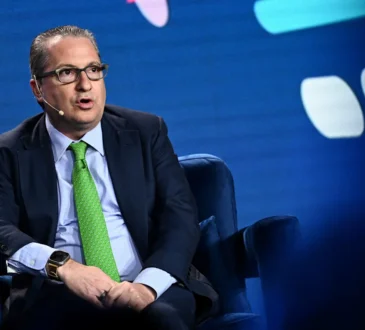
Unlock the Editor’s Digest for free
Roula Khalaf, Editor of the FT, selects her favourite stories in this weekly newsletter.
London is establishing itself as a centre for quantitative finance, with a number of trading firms and investors based in the capital becoming multibillion-dollar forces in the market.
Algorithmic trading firm XTX along with quantitative investors Qube and Quadrature have each made more than £1bn in revenues over the past year according to public filings by their UK entities, cementing their positions at a time when London’s status as a global financial hub has been called into question.
So-called “quant” trading firms and hedge funds use mathematical models combined with vast amounts of data and computing power to spot correlations and asymmetries in asset prices and make bets.
They rely much less on human input and, partly because of less onerous regulation, have quietly become some of the most dominant and profitable firms in the trading world.
Some of the biggest quant firms are based in and around New York but there is “absolutely” a quant renaissance in London, according to Raffaele Savi, global head of BlackRock’s quantitative investing teams.
“It’s the combination of great [universities] in the UK and Europe, a good regulatory framework, and tradition,” he said.
A US-based quant hedge fund manager commented: “It’s quite remarkable seeing the rise of London as a quant centre, perhaps even rivalling New York.”
When quantitative trading started to take off in the 1980s, some UK firms carved themselves a niche. One such example is AHL — now owned by Man Group — which pioneered a strategy known as trend following.
This spawned a generation of similar quantitative funds, such as Winton and Aspect.
These days, UK-based quant firms employ a wider range of strategies.
Qube focuses on market making and statistical arbitrage trading, a data-driven strategy based on assessing pricing differences between securities. Net revenues for its UK entity were £2bn last year, up almost sevenfold on 2020.
XTX, led by its billionaire founder Alexander Gerko, uses machine learning to forecast the price of assets including stocks, bonds, crypto and currencies. It made £1.3bn in profits after tax at its UK entities last year, a 54 per cent rise on 2023. Its revenues rose 36 per cent in the same period, hitting £2.7bn last year.
Showing the importance of computing power, it is spending more than €1bn to build its own data centre in Finland, while Qube is building a data centre in Iceland.
Revenues at Quadrature, which was founded in 2010, rose almost fivefold to £1.2bn between 2020 and 2024.
Another London quant business that has been doing well is research firm G-Research, which advises investment firms affiliated to its founder Peter De Putron. Two companies linked to the group that supply research and IT services alone made £712mn combined in the 15 months to the end of 2023, according to UK filings.
People familiar with the firm said its input powered sizeable quant trading revenues. G-Research did not respond to a request for comment.

The growth of these firms in London has been helped by a pipeline of skilled graduates from UK universities — in contrast to the US, where engineering and computing graduates often join big tech companies. Quant groups often sponsor student society events, hackathons and PhD programmes in the UK.
“After the global financial crisis, London as a city had some cracks in it,” said Paul Rowady, founder of trading consultancy Alphacution. “You’re now seeing a wave of lots of very talented and smart people coming through.”
Quant firms can also offer very high pay and a more relaxed working environment than comparable finance or tech jobs.
“Only a handful of people went into big tech in our year, whereas dozens joined market makers or quant hedge funds,” said one recent computing graduate from Imperial College London who now works at a quant hedge fund.
Alvaro Cartea, director of Oxford university’s quantitative finance institute, said almost all his students ended up working at trading firms, on salaries from £250,000 to £800,000.
“If you get offered a salary less than £250K, you’re kind of the sad guy,” he said, adding: “Nobody I know interviews for JPMorgan, Goldman Sachs . . . not once do I hear anybody entertain any of these traditional investment banking jobs.”




